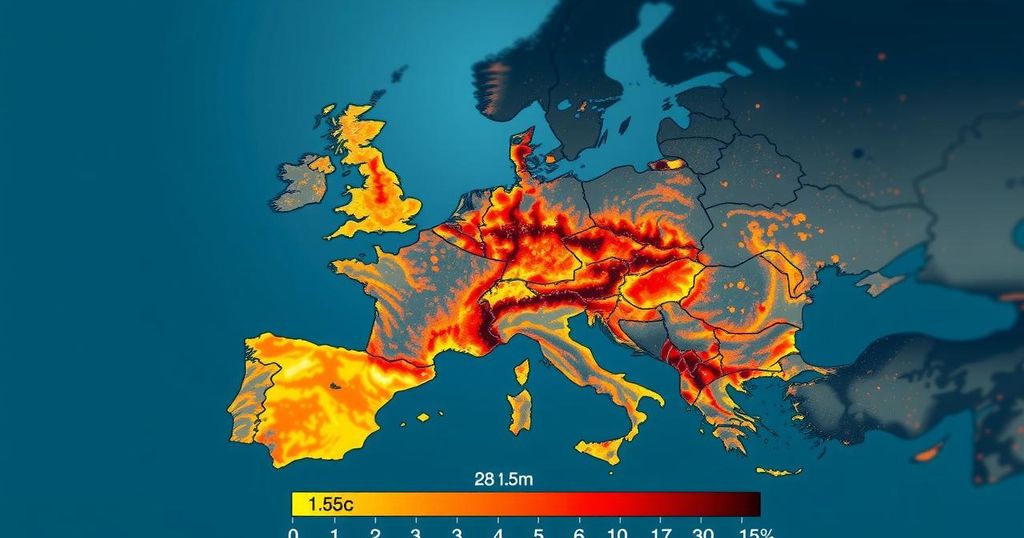The European Union’s Copernicus Climate Change Service predicts that 2024 will mark the first instance of global temperature exceeding 1.5 degrees Celsius above pre-industrial levels, indicating an urgent need for intensified climate action as nations prepare for critical UN negotiations. Severe weather events underscore the gravity of climate change, with projections showing potential warming threats in the coming century.
The European Union’s Copernicus Climate Change Service (C3S) has issued a stark warning that the year 2024 will be the first to surpass the critical threshold of 1.5 degrees Celsius (2.7 degrees Fahrenheit) above pre-industrial temperatures. This alarming prediction arrives just ahead of significant climate negotiations under the United Nations framework. With current climatic conditions, 2024 is also projected to outpace 2023, establishing itself as the hottest year recorded to date. C3S Deputy Director Samantha Burgess emphasized the seriousness of this milestone, urging that it should inspire intensified global action ahead of the upcoming Climate Change Conference, COP29. The agency highlighted the urgent need for measures to mitigate climate change, exemplified by the severe weather events experienced globally, including devastating flooding in Spain and Hurricane Milton. The year 2024 is anticipated to see temperatures exceed 1.55 degrees Celsius (2.79 degrees Fahrenheit) relative to the historical average of 1850 to 1900. However, according to the Paris Agreement, this single-year temperature spike does not constitute a breach, as the accord acknowledges long-term averages rather than annual fluctuations. Given the historical backdrop of climate policy, the impending discussions in Azerbaijan aim to address the escalating global warming crisis, particularly in light of fluctuating U.S. political positions on climate agreements. The ramifications of sustained temperature increases are dire, with projections suggesting an alarming trajectory toward 3.1 degrees Celsius (5.58 degrees Fahrenheit) warming by the end of the century if current strategies are maintained, and only a slightly reduced trajectory of 2.6 degrees Celsius (4.68 degrees Fahrenheit) if existing commitments are fully enacted. Furthermore, the United Nations indicated that financial support for vulnerable countries’ adaptation efforts falls significantly short of what is required to effectively address impending disasters. The organization warns that mitigation efforts must be amplified to avert catastrophic impacts on human life and ecosystems.
The ongoing climate crisis has led to increasing concern regarding global temperature rises, particularly in the context of the Paris Agreement, which aims to limit climate change by keeping global warming well below 2 degrees Celsius and striving for a limit of 1.5 degrees Celsius. Rising temperatures contribute to extreme weather events, sea-level rise, and biodiversity loss, necessitating immediate and coordinated international efforts to reduce greenhouse gas emissions and enhance adaptation strategies for affected communities. The latest warnings from climate agencies underscore the urgency of these challenges as nations prepare to convene for critical negotiations.
In summary, the warning from the Copernicus Climate Change Service that 2024 will be the first year to exceed the critical threshold of 1.5 degrees Celsius serves as a stark reminder of the accelerating pace of climate change. This development compels nations to heighten their commitments during forthcoming international negotiations, recognizing that each increment of warming brings escalating risks to both human civilization and natural ecosystems. The need for enhanced climate action and financial support for adaptation in vulnerable regions is more pressing than ever.
Original Source: www.aljazeera.com






